WILPF Canada members share these BOOK recommendations:
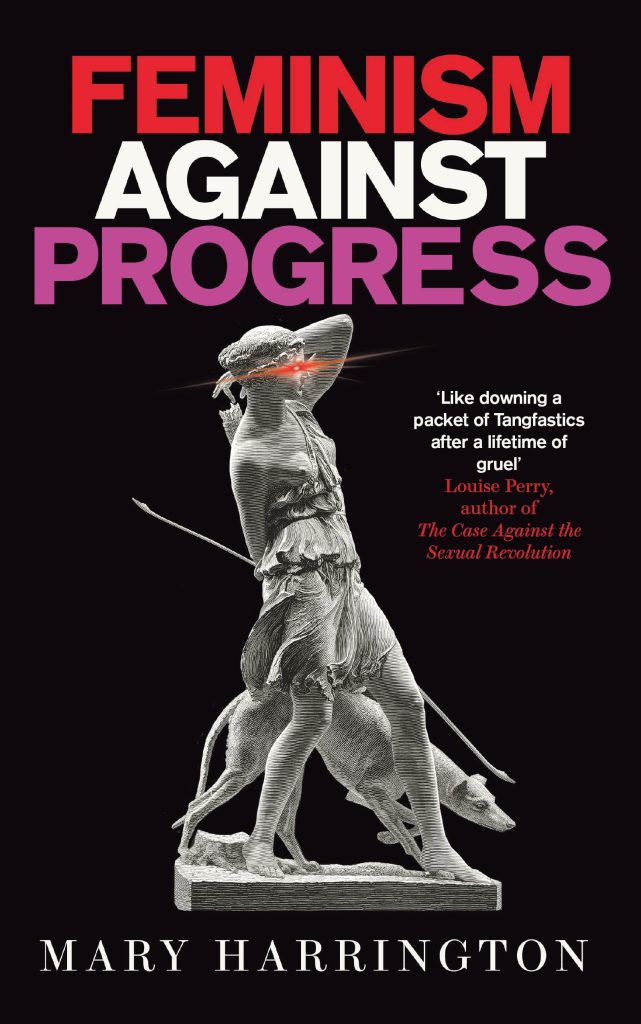
Feminism Against Progress
Mary Harrington
Swift Press, 2023
In Feminism Against Progress, Mary Harrington argues that the industrial-era faith in progress is turning against all but a tiny elite of women. Women’s liberation was less the result of human moral progress than an effect of the material consequences of the Industrial Revolution. We’ve now left the industrial era for the age of AI, biotech and all-pervasive computing. As a result, technology is liberating us from natural limits and embodied sex differences. Although this shift benefits a small class of successful professional women, it also makes it easier to commodify women’s bodies, human intimacy and female reproductive abilities.
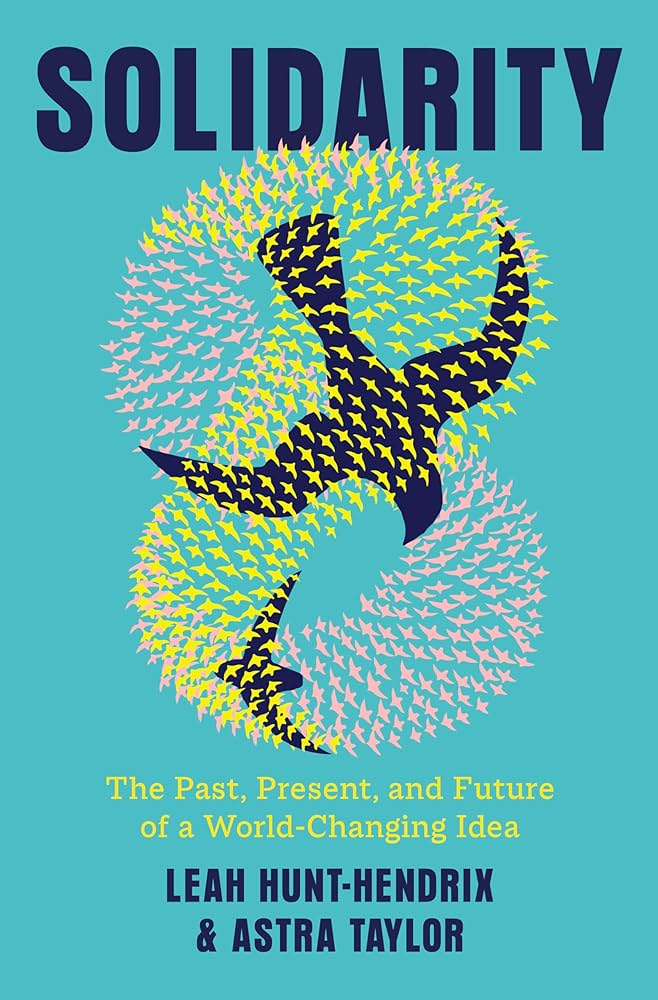
Solidarity: The Past, Present, and Future of a World-Changing Idea
Leah Hunt-Hendrix & Astra Taylor
Pantheon, 2024
Solidarity is often invoked, but it is rarely analyzed and poorly understood. Here, two leading activists and thinkers survey the past, present, and future of the concept across borders of nation, identity, and class to ask: how can we build solidarity in an era of staggering inequality, polarization, violence, and ecological catastrophe? Offering a lively and lucid history of the idea—from Ancient Rome through the first European and American socialists and labor organizers, to twenty-first century social movements like Occupy Wall Street and Black Lives Matter—Hunt-Hendrix and Taylor trace the philosophical debates and political struggles that have shaped the modern world.
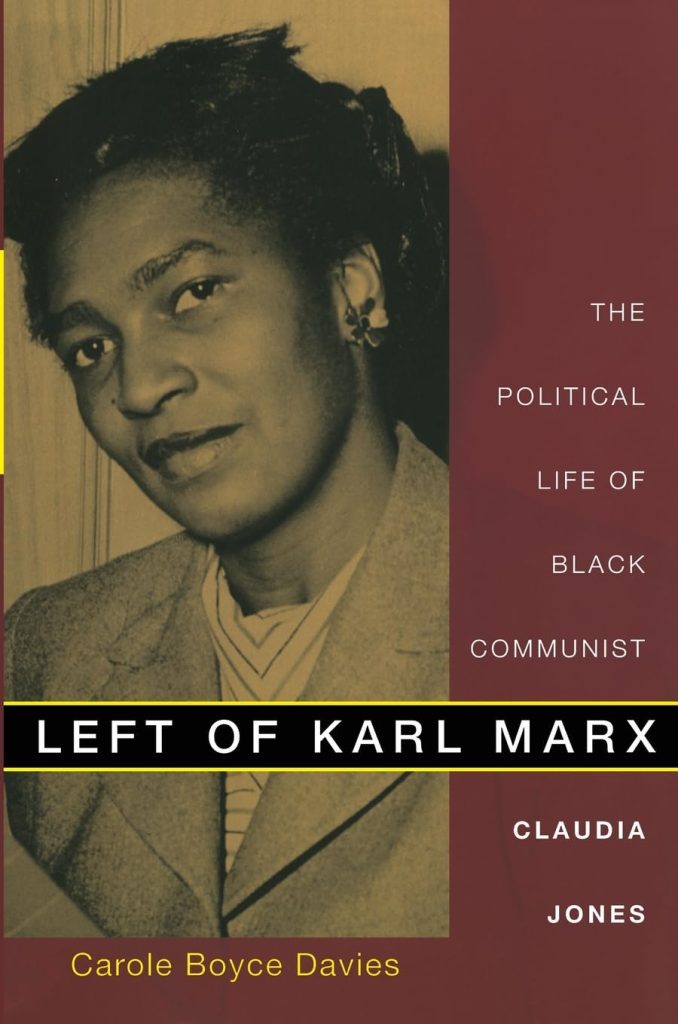
Left of Karl Marx: The Political Life of Black Communist Claudia Jones
Carole Boyce Davies
Duke University Press, 2008
In Left of Karl Marx, Carole Boyce Davies assesses the activism, writing, and legacy of Claudia Jones (1915–1964), a pioneering Afro-Caribbean radical intellectual, dedicated communist, and feminist. Jones is buried in London’s Highgate Cemetery, to the left of Karl Marx—a location that Boyce Davies finds fitting given how Jones expanded Marxism-Leninism to incorporate gender and race in her political critique and activism.
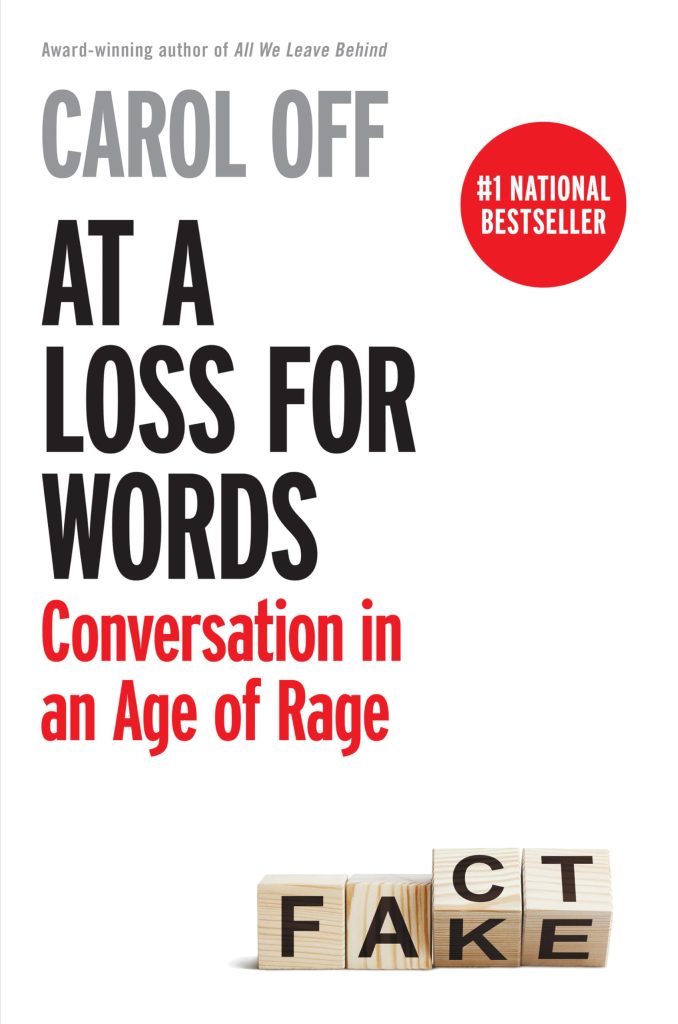
At a Loss for Words: Conversation in an Age of Rage
Carol Off
Random House Canada, 2024
Award-winning author and broadcast journalist Carol Off digs deep into six words whose meanings have been distorted and weaponized in recent years—including democracy, freedom and truth—and asks whether we can reclaim their value.
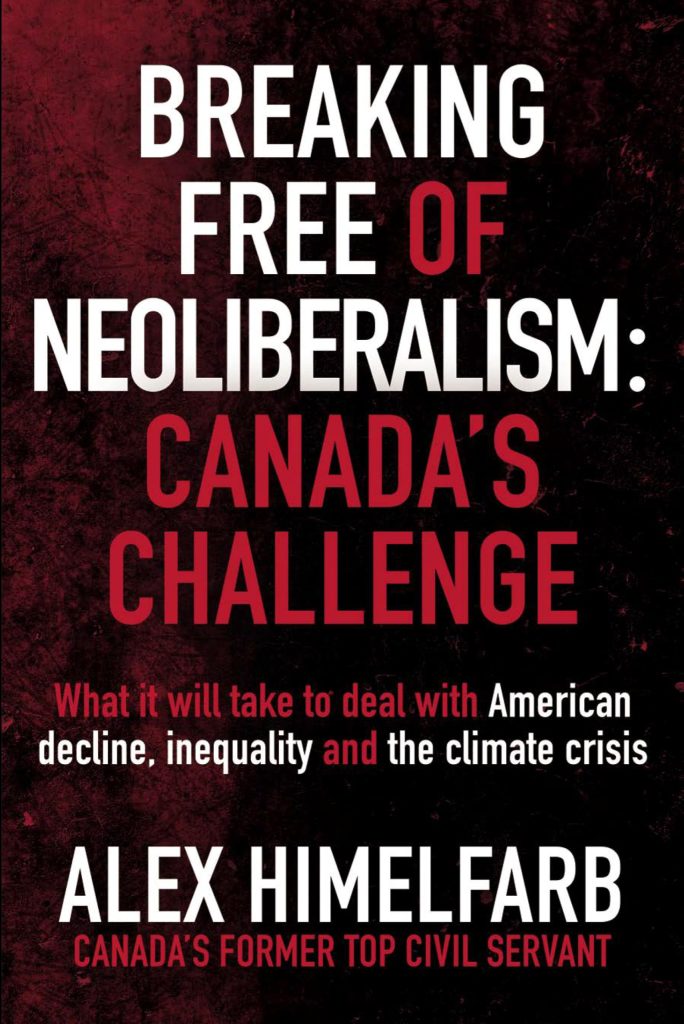
Breaking Free of Neoliberalism: Canada’s Challenge
Alex Himelfarb
James Lorimer & Company Ltd., 2024
Neoliberalism—idealizing free-market capitalism—sets the boundaries for how we are governed in Canada, no matter who is in power. Author Alex Himelfarb explores why these ideas persist when the need for dramatic action on issues like inequality and global warming is obvious to all.
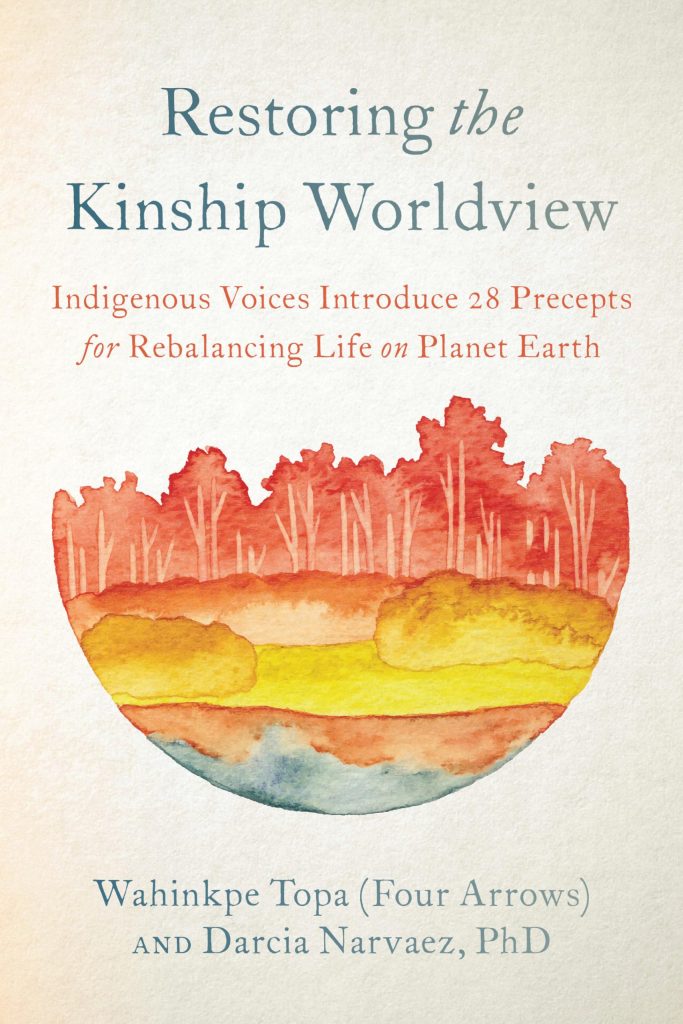
Restoring the Kinship Worldview: Indigenous Voices Introduce 28 Precepts for Rebalancing Life on Planet Earth
Wahinkpe Topa (Four Arrows) and Darcia Narvaez, PhD.
North Atlantic Books, 2022
Selected speeches from Indigenous leaders around the world–necessary wisdom for our times, nourishment for our collective, and a path away from extinction toward a sustainable, interconnected future.
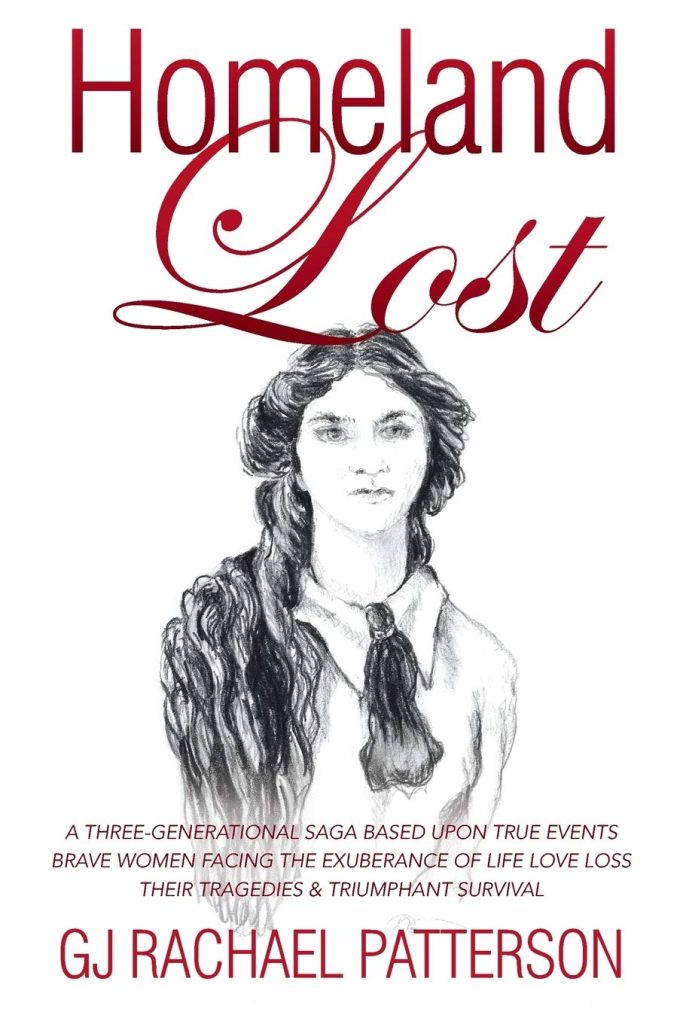
Homeland Lost
GJ Rachael Patterson
Westbow Press, 2014
A true story inspired by true events, author GJ RACHAEL PATTERSON narrates in a creative nonfiction genre a story based on twelve years of genealogical research of her ancestral roots–a three-generational saga filled with perils and triumphs.
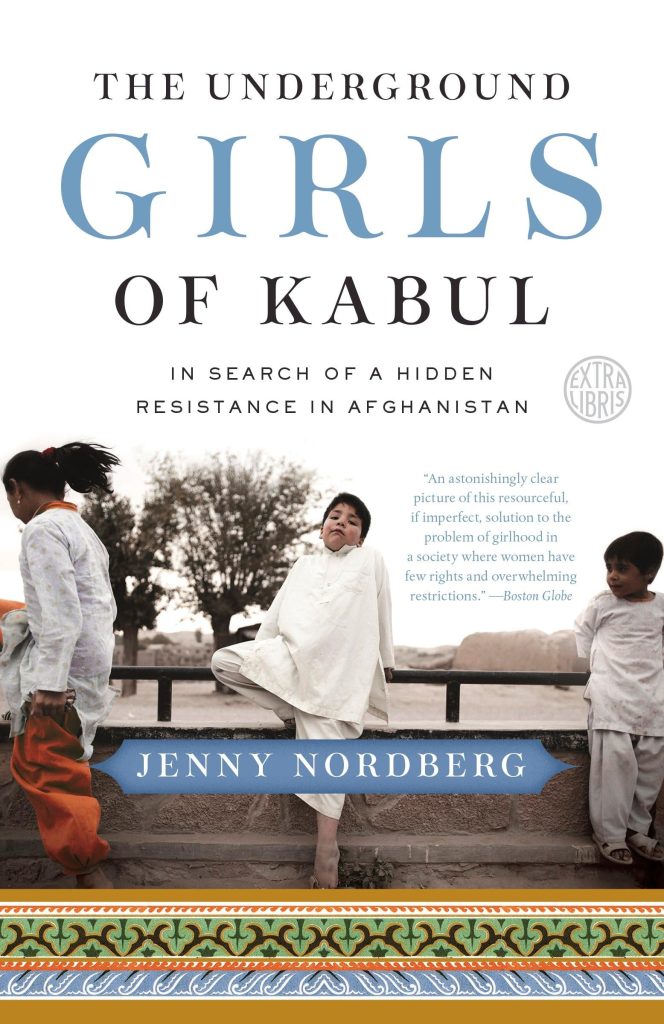
The Underground Girls of Kabul: In Search of a Hidden Resistance in Afghanistan
Jenny Nordberg
Crown, 2015
In Afghanistan, a culture ruled almost entirely by men, the birth of a son is cause for celebration and the arrival of a daughter is often mourned as misfortune. A bacha posh (literally translated from Dari as “dressed up like a boy”) is a third kind of child—a girl temporarily raised as a boy and presented as such to the outside world. Jenny Nordberg, the reporter who broke the story of this phenomenon for the New York Times, constructs a powerful and moving account of those secretly living on the other side of a deeply segregated society where women have almost no rights and little freedom.
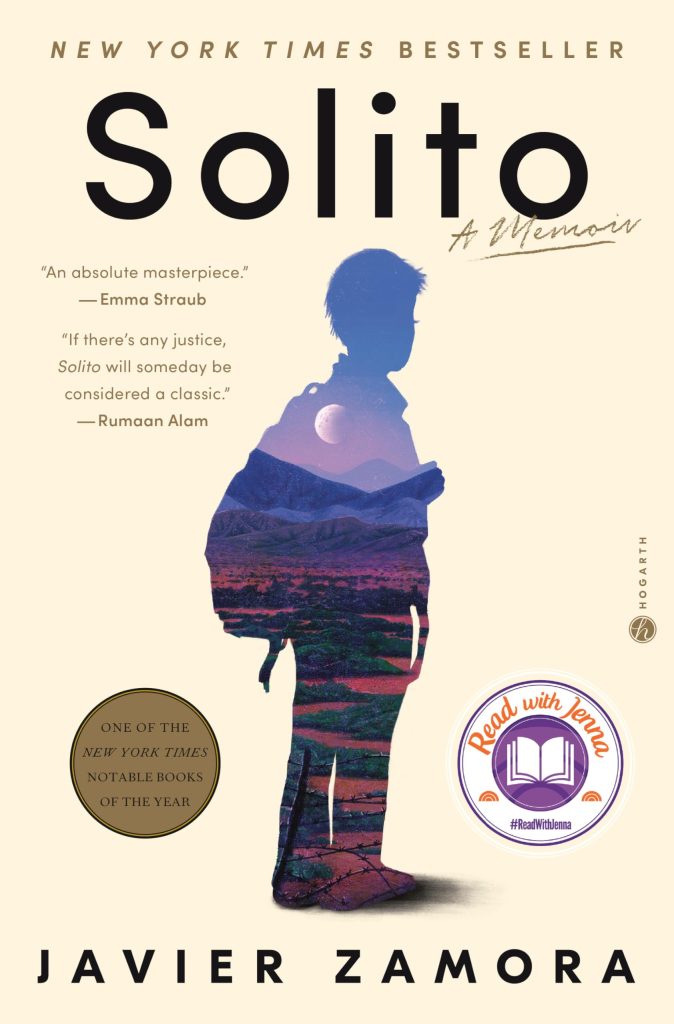
Solito: A Memoir
Javier Zamora
Hogarth, 2023
Javier Zamora’s adventure is a three-thousand-mile journey from his small town in El Salvador, through Guatemala and Mexico, and across the U.S. border. He will leave behind his beloved aunt and grandparents to reunite with a mother who left four years ago and a father he barely remembers. Traveling alone amid a group of strangers and a “coyote” hired to lead them to safety, Javier expects his trip to last two short weeks.
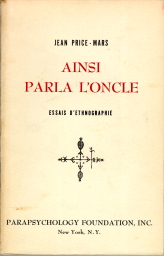
Ainsi parle l’oncle (So Spoke the Uncle)
Jean Price-Mars, Magdaline W. Shannon (Translator)
1935
Jean Price-Mars’s Ainsi parle l’oncle (in English, Thus Spoke the Uncle), is among the most piercing accounts of the psychology of colonialism and neocolonialism, anticipating, by decades, those celebrated studies of the colonized mind by Frantz Fanon, Ngugi wa Thiongo, and others.
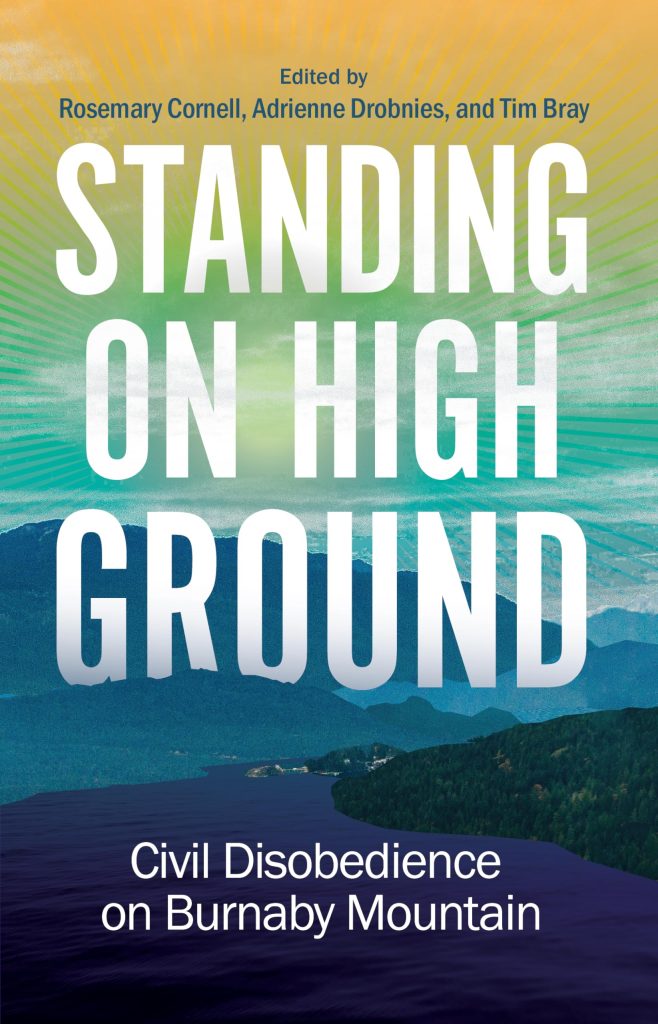
Standing on High Ground: Civil Disobedience on Burnaby Mountain
Edited by Rosemary Cornell, Adrienne Drobnies and Tim Bray
Between the Lines, 2024
What am I doing to address the climate crisis? How far will I go to defend the earth? What price am I willing to pay for climate justice? Since 2014, hundreds of people have been arrested while engaging in non-violent civil disobedience to protest the “TMX” Trans Mountain pipeline project. Standing on High Ground: Civil Disobedience on Burnaby Mountain includes twenty-five stories of people who put themselves on the line for climate justice.
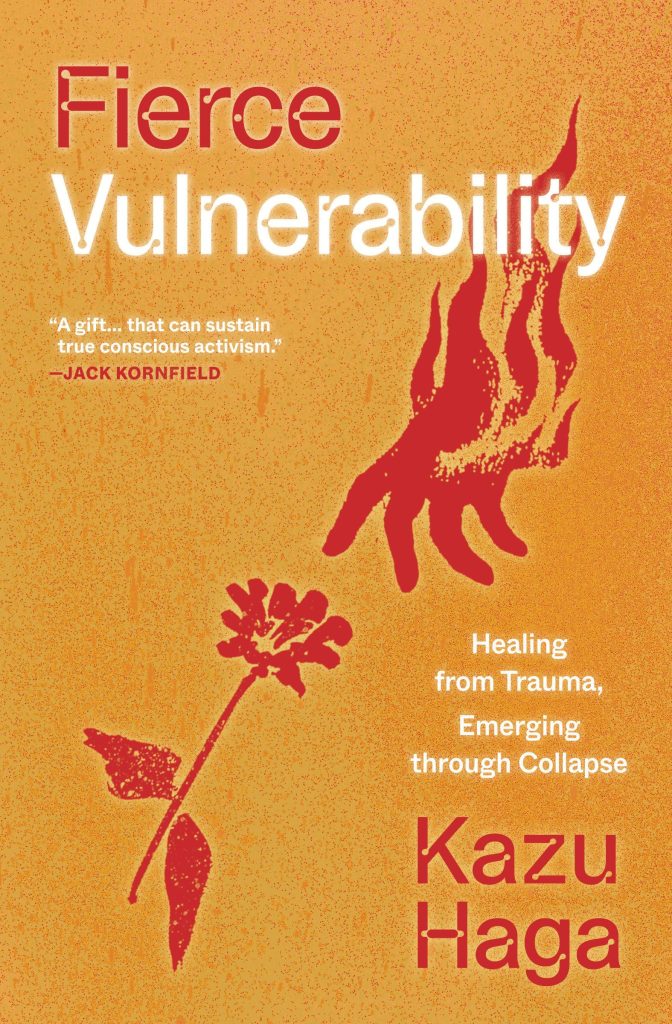
Fierce Vulnerability: Healing from Trauma, Emerging through Collapse
Kazu Haga
Parallax Press, 2025
In times of collapse, we need a movement that recognizes injustice as a reflection of collective trauma and embraces its role as a catalyst for collective healing through transformative action. In Fierce Vulnerability, activist and author Kazu Haga argues the “us versus them” binary worldview is at the heart of what is destroying our relationships and our planet and offers a new way to create healing by combining the time-honored lineage of nonviolent action with the sciences of trauma healing and the promises of spiritual practice. Fierce Vulnerability realizes we can’t “shut down” injustice any more than we can “shut down” trauma; if healing is our goal, we need social movements that center relationship.
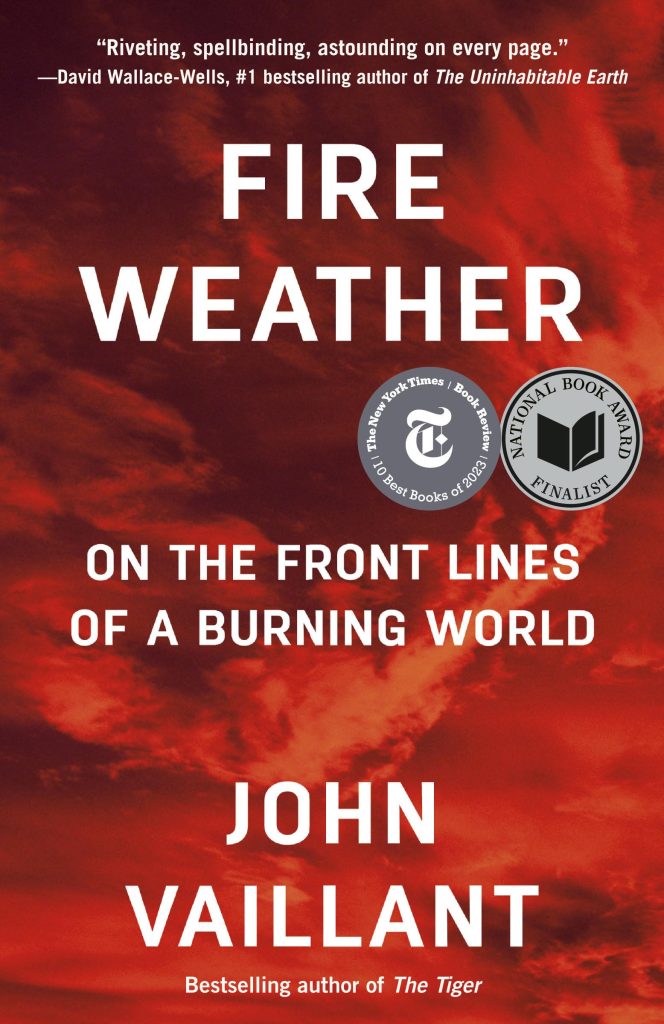
Fire Weather: On the Front Lines of a Burning World
John Vaillant
Vintage, 2024
In May 2016, Fort McMurray, the hub of Canada’s oil industry and America’s biggest foreign supplier, was overrun by wildfire. The multi-billion-dollar disaster melted vehicles, turned entire neighborhoods into firebombs, and drove 88,000 people from their homes in a single afternoon. Through the lens of this apocalyptic conflagration—the wildfire equivalent of Hurricane Katrina—John Vaillant warns that this was not a unique event, but a shocking preview of what we must prepare for in a hotter, more flammable world.
WILPF Canada members share these FILM recommendations:
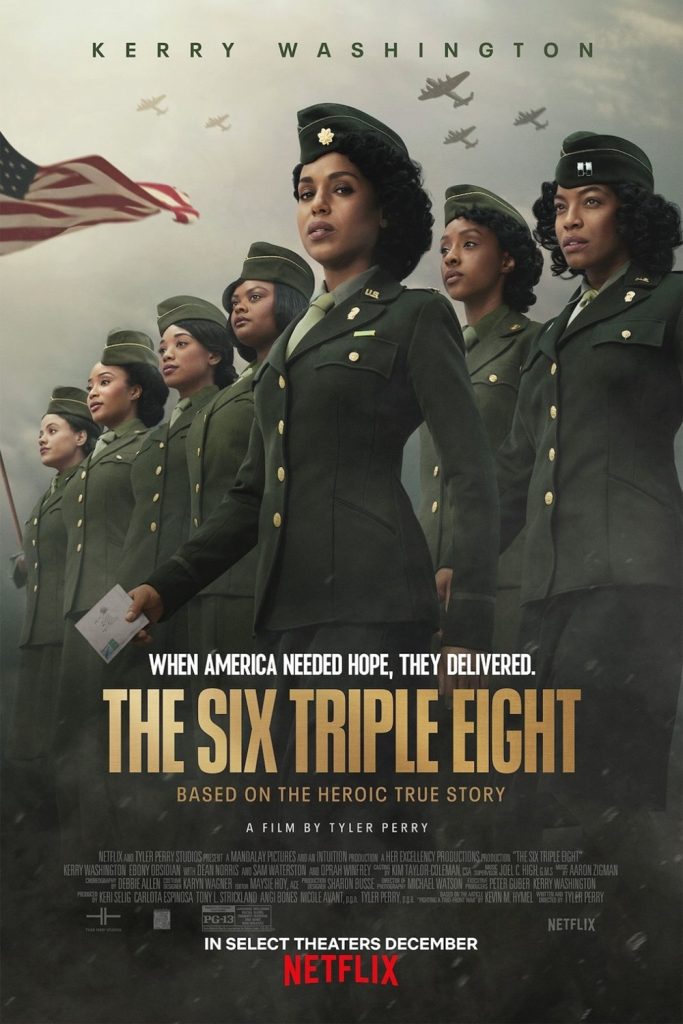
The Six Triple Eight (2024)
During World War II, 855 African-American women joined the fight to fix the three-year backlog of undelivered mail. Faced with discrimination and a country devastated by war, they managed to sort more than 17 million pieces of mail ahead of time.
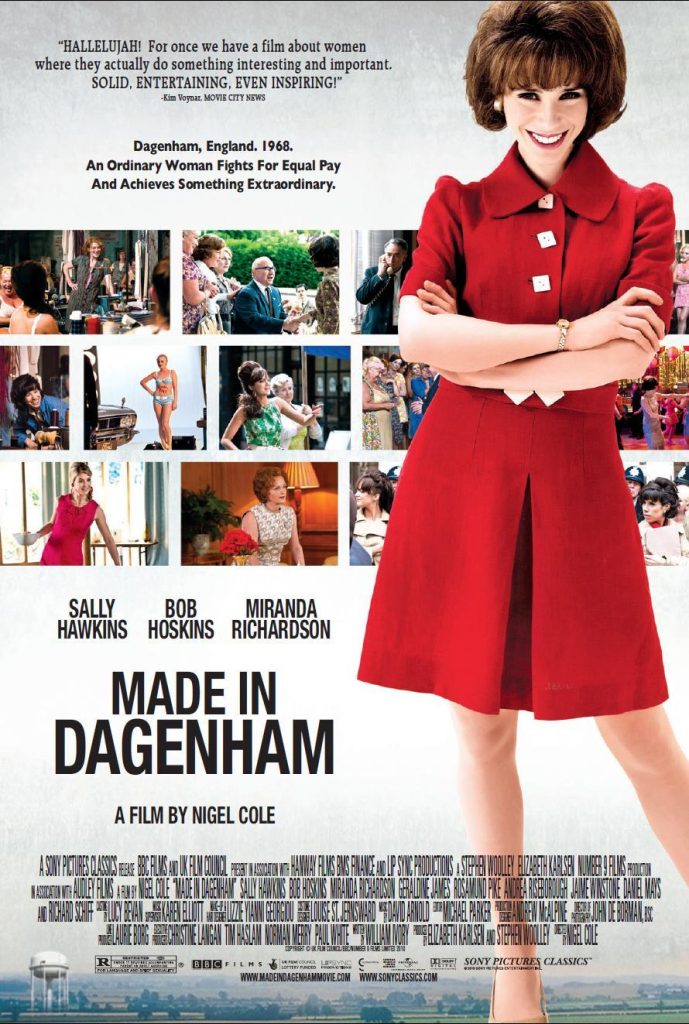
Made in Dagenham (2010)
A dramatization of the 1968 strike at the Ford Dagenham car plant, where female workers walked out in protest against sexual discrimination.

Aisha (2022)
While caught for years in Ireland’s immigration system Aisha Osagie develops a close friendship with former prisoner Conor Healy. This friendship soon looks to be short lived as Aisha’s future in Ireland comes under threat.
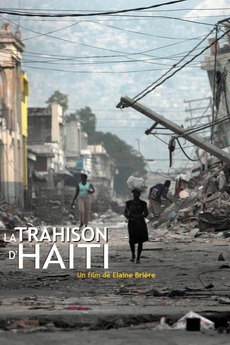
Haiti Betrayed (2020)
Haiti Betrayed reveals how Canada colluded with the United States and France to topple the democratically elected government of Haiti. Seven years in the making, Brière’s film meticulously reconstructs Canada’s role in the coup d’état of February 29, 2004, the immediate bloody aftermath and the manipulated elections that followed.
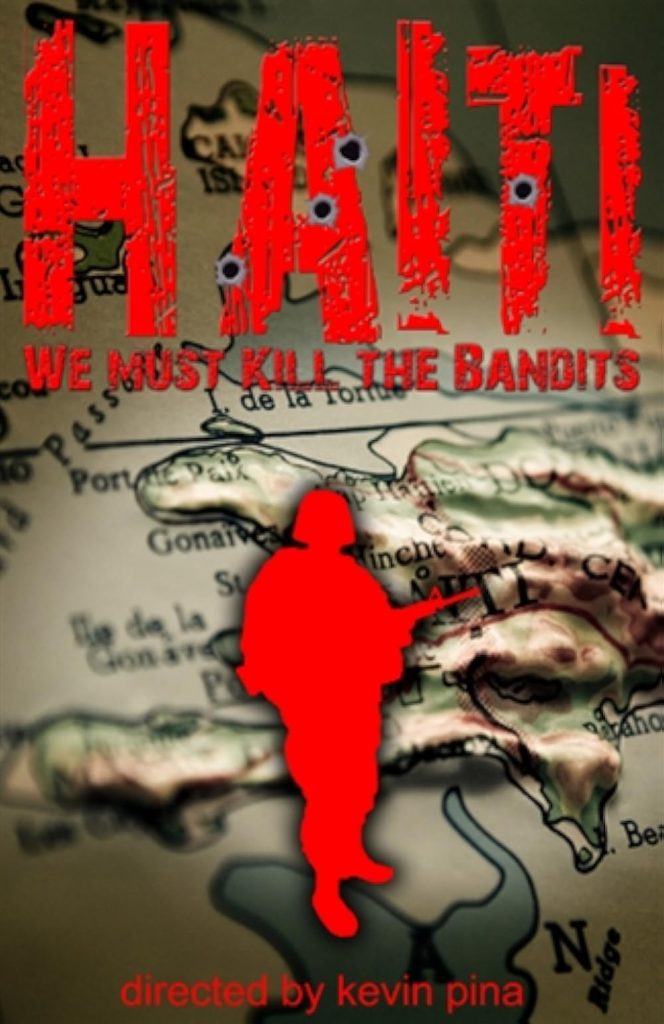
Haiti: We Must Kill the Bandits (2010)
While the world focuses on the one-year anniversary of the earthquake that devastated Haiti, a recently released documentary is a welcome reminder that Haiti’s history didn’t start in 2010. Haiti: We Must Kill the Bandits offers an uncompromising perspective on the years 2004-2005, when Haiti went through a coup that ousted democratically elected President Jean-Bertrand Aristide and a subsequent occupation by foreign troops under a UN Security Council mandate. The director, Kevin Pina, a Creole-speaking American journalist who has lived in Haiti on and off for 15 years, tells a story that has so far largely been outshone by the official narrative.

